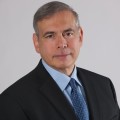We are constantly being told that when schools want to slash their budgets, the first thing that goes is music or the arts. As a professional musician and classically trained pianist, this always makes me sad and frustrated. Administrators don't seem to realize how the study of music and an instrument can positively impact all areas of one's life. I cannot imagine how life would be without the magic of music. Musical rhythm is directly related to math and to fractions. Playing an instrument such as the piano promotes ambidexterity, use of one's right and left sides, motor skill development, coordination, memorization through repetitive movements, listening, concentration, time management, and goal setting. There has even been evidence that studying the piano is a powerful weapon against the onslaught of Alzheimer's Disease. This is because we are reading two clefs at the same time, and using both sides of our brain. Something such as sight-reading and memorizing is tremendous exercise for the brain, as it forces us to do read, process, and coordinate many things at the same time.
Music is also a realm of communication that begins where words end. It transcends national boundaries, and increases our humanity. It is also highly therapeutic, with many physical benefits.The lowering of one's blood pressure is one example. It can also raise one's IQ, In fact, there has even been evidence that a mother playing the music of Mozart close to her tummy during her pregnancy can result in the increased IQ of her child after he or she is born! For more detailed information on the sundry benefits of music, check out my website.


